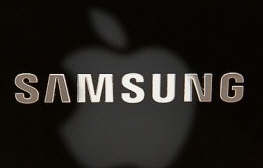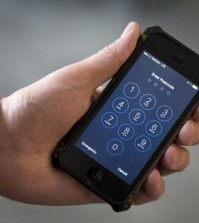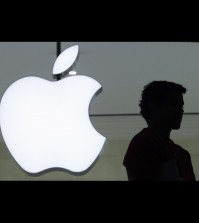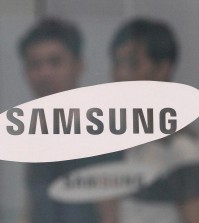- California Assembly OKs highest minimum wage in nation
- S. Korea unveils first graphic cigarette warnings
- US joins with South Korea, Japan in bid to deter North Korea
- LPGA golfer Chun In-gee finally back in action
- S. Korea won’t be top seed in final World Cup qualification round
- US men’s soccer misses 2nd straight Olympics
- US back on track in qualifying with 4-0 win over Guatemala
- High-intensity workout injuries spawn cottage industry
- CDC expands range of Zika mosquitoes into parts of Northeast
- Who knew? ‘The Walking Dead’ is helping families connect
Samsung strikes potentially multi-billion dollar chip deal with Apple
Chip giant partners with GlobalFoundries to fabricate Apple chips
By Kim Yoo-chul
Samsung Electronics agreed with Apple to produce application processors (APs) from next year for iPhones and iPads, sources said Monday.
The agreement means Samsung will become a primary supplier of APs to Apple, pushing its chief Taiwanese rival TSMC back to second place.
From 2016, the company will supply 80 percent of APs used in Apple devices, and TSMC the remainder.
Unlike conventional memory chips such as DRAMs and NANDs, APs are categorized as logic chips which give producers much higher margins.
AP chips function as the brain in computing devices. Apple will design its A-series APs, and Samsung will fabricate them in partnership with GlobalFoundries (GF), a semiconductor manufacturer headquartered in Santa Clara, Calif.
“Apple has designated Samsung as the primary supplier of its next A-series chips powering iOS devices from 2016 as the alliance with GlobalFoundries (GF) enabled Samsung to cut off capacity risk,” a source familiar with the deal said.
The value of the deal is said to be worth “billions of dollars,” according to the sources.
Production of the APs will start early next year at Samsung’s local factory in Giheung, Gyeonggi Province, and the volume will grow as Samsung plans to use its facilities in Austin, Texas and the GF-owned factory in New York for increased output, another source said.
The resumption of business with Apple comes a month after the two companies agreed to drop all patent litigation outside the United States.
Samsung declined to comment about updates of its patent fight with Apple on the latter’s home-turf. Apple previously asked TSMC to make APs being used in the iPhone 6.
From a technology standpoint, Samsung has made a smoother transition to manufacturing customized chips by using a finer 14-nanometer FinFET processing technology, and the collaboration with GF lowered costs.
TSMC will ramp up production of chips using 16-nnometer FinFET technology.
Samsung’s technology is better in terms of efficiency and energy consumption.
At Samsung’s most recent earnings call, officials said that it is producing sample 14-nanometer chips for an unidentified customer.
They said that the firm will start mass producing the wafers for the chips either at the end of the year or early 2016.
“Samsung’s logic chip business division will get the S3 line equipment back from the memory business. The year 2015 will have a half-year contribution, while 2016 should have a full year contribution from 14nm for external customers,” said Bernstein Research in a note to clients.
IM Investment, a local brokerage, expects Samsung to win more orders to fabricate customized chips from Qualcomm, Nvidia and Sony, helping it generate more revenue to make up for its struggling smartphone business.
Samsung Electronics is shifting its focus to logic chips amid the rise of budget smartphones.
“Samsung has so far proved its capability in memory chips. Corporate clients were reluctant to depend on Samsung for logic chips. But the partnership with GF will allow Samsung to win more orders to fabricate customized chips,” said an industry official.
Samsung Electronics President Kim Ki-nam recently said the firm’s logic chip division will bolster its profits next year.
















